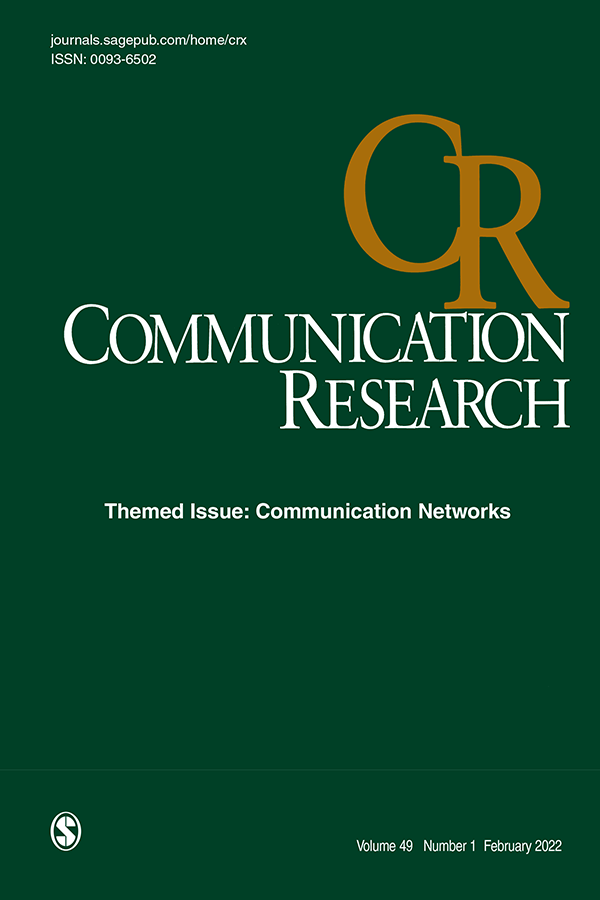Eudaimonic Entertainment Experiences of TV Theme Nights and Their Relationships With Political Information Processing and Engagement
IF 3.2
1区 文学
Q1 COMMUNICATION
引用次数: 0
Abstract
Can fictional entertainment foster political information processing and engagement, and if so, how? A German national telephone survey (电视主题夜的情感娱乐体验及其与政治信息加工和参与的关系
虚构的娱乐能够促进政治信息的处理和参与吗?如果可以,又是如何做到的?一项德国全国电话调查(N Study1 = 905)和两项在线调查(N Study2 = 877;N Study3 = 1018)是为了扩展先前的实验研究,通过使用代表性调查,并包括暴露后实际行为的自我报告,研究了在现实环境中非被迫暴露于全长媒体刺激的情况。调查参与者接受了关于电视主题之夜(即,随后的娱乐和同一主题的信息节目的组合)的采访,以检查快乐的娱乐体验(即,感人和发人深省的经历)与政治相关结果之间的直接和间接关系。不出所料,在所有三项研究中,被电影感动的感觉与反思思想呈正相关,而反思思想又与问题兴趣、主观知识和参与政治的意愿相关。在一些但不是所有的研究中都出现了情感感动和反思思想与信息寻求、客观知识和人际讨论的额外关系。
本文章由计算机程序翻译,如有差异,请以英文原文为准。
求助全文
约1分钟内获得全文
求助全文
来源期刊

Communication Research
COMMUNICATION-
CiteScore
17.10
自引率
0.00%
发文量
20
期刊介绍:
Empirical research in communication began in the 20th century, and there are more researchers pursuing answers to communication questions today than at any other time. The editorial goal of Communication Research is to offer a special opportunity for reflection and change in the new millennium. To qualify for publication, research should, first, be explicitly tied to some form of communication; second, be theoretically driven with results that inform theory; third, use the most rigorous empirical methods; and fourth, be directly linked to the most important problems and issues facing humankind. Critieria do not privilege any particular context; indeed, we believe that the key problems facing humankind occur in close relationships, groups, organiations, and cultures.
 求助内容:
求助内容: 应助结果提醒方式:
应助结果提醒方式:


